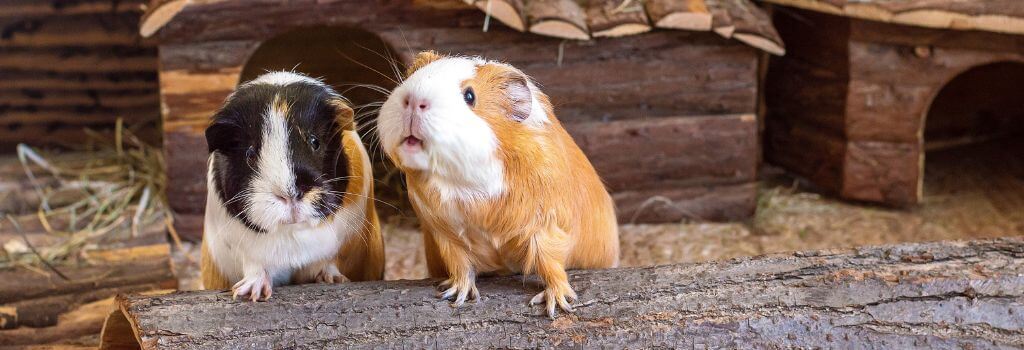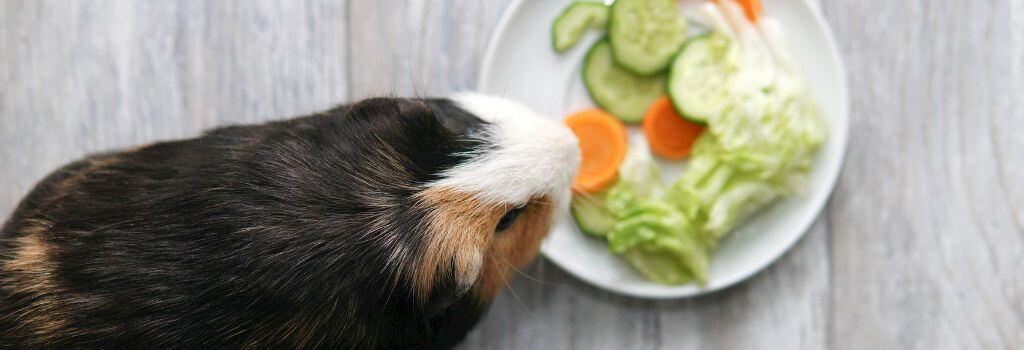Guinea pigs steal hearts worldwide with their adorable wheeking sounds, expressive faces, and precious personalities. These small companions bring immense joy to their families, but many well-meaning pet parents unknowingly make mistakes that impact their health. Fortunately, small adjustments to their care routine have a positive impact on your guinea pig’s quality of life and longevity.
Understanding your guinea pig’s unique needs enables you to maintain an environment where your furry friend can flourish. Let’s explore some essential dos and don’ts that might surprise even experienced guinea pig owners.
DO: Provide Unlimited High-Quality Hay
Timothy hay should form the foundation of your guinea pig’s diet and be available 24 hours a day without restriction. This fibrous food source serves several critical functions, and the chewing motion naturally wears down your guinea pig’s continuously growing teeth. This prevents the painful overgrowth that can lead to serious dental problems.
Quality matters when selecting hay. Look for timothy hay that is green, smells fresh, and feels soft to the touch. Avoid brown, dusty, or moldy hay, as it can irritate your guinea pig’s respiratory system or cause digestive upset. Store hay in a dry location to maintain its nutritional value and palatability.
Hay’s fiber promotes healthy digestion and prevents gastrointestinal stasis, a condition in which digestion slows or stops. Quality hay supports your guinea pig’s natural cecotrophy behavior and maintains balanced gut bacteria.
DON’T: Rely Solely on Pellets
Brands market pellets as a complete guinea pig diet, but these products fall short of meeting your pet’s nutritional needs. Guinea pigs, like humans and a few other species, cannot synthesize their own vitamin C and must obtain this essential nutrient from their diet. Scurvy, caused by vitamin C deficiency, can develop within weeks and causes joint pain, dental problems, and a weakened immune system.
Supplement your guinea pig’s diet with fresh vegetables rich in vitamin C daily. Bell peppers, especially red ones, contain high levels of this vital nutrient. Other excellent sources include leafy greens like romaine lettuce, cilantro, and parsley. Introduce new vegetables gradually to prevent digestive upset, and rotate varieties to provide diverse nutrients.
When choosing pellets, select those specifically formulated for guinea pigs and fortified with stabilized vitamin C. Rabbit pellets lack adequate vitamin C levels and contain fiber ratios that are unsuitable for guinea pig digestion. Check expiration dates carefully, as vitamin C degrades over time, especially when exposed to light and air.

DO: Create Spacious Housing with Room for Natural Behaviors
Guinea pigs are active animals that require substantial space to exercise and explore. The smallest recommended cage size for two guinea pigs is 7.5 square feet, but bigger is always better. Many commercial cages marketed for guinea pigs fall short of these requirements, leading to obesity, depression, and behavioral problems.
Provide multiple hiding spots throughout the enclosure, as guinea pigs are prey animals with a strong instinct to seek shelter when they feel vulnerable. Wooden hidey-holes, fleece tents, and cardboard castles all serve this purpose while adding environmental enrichment.
DON’T: House Guinea Pigs with Rabbits
Pet stores and online resources sometimes suggest guinea pigs and rabbits make compatible companions, but this pairing poses significant health and safety risks for both species. Rabbits can carry Bordetella bacteria that typically cause no symptoms in healthy rabbits but can trigger severe respiratory illness in guinea pigs. Bacterial transmission can occur through shared air space, making even brief contact potentially dangerous.
The size difference between most rabbits and guinea pigs also creates a risk of injury. Rabbits have powerful hind legs and can inadvertently harm guinea pigs during play or territorial disputes. Additionally, their distinct communication styles and social structures can cause stress and behavioral issues in both animals.
Dietary needs also differ between rabbits and guinea pigs. Rabbit pellets lack the vitamin C guinea pigs need, while guinea pig pellets may contain too much calcium for rabbits. Sharing food can cause nutritional imbalances for both species.
DO: Provide Regular Enrichment and Supervised Floor Time
Mental stimulation and physical exercise are essential components of guinea pig wellness that many owners overlook. These intelligent animals benefit from environmental enrichment that challenges their minds and encourages natural foraging behaviors. Simple additions like paper bags, cardboard tubes, and timothy hay-stuffed toys can transform a basic enclosure into an engaging habitat.
Supervised floor time in a safe, secure area allows guinea pigs to stretch their legs and explore. Create a secure playpen using exercise pen panels or designate a piggy-proofed room for daily exercise. Always supervise these activities, as guinea pigs can squeeze into surprisingly small spaces and may chew on inappropriate items.
Rotate toys and enrichment items regularly to prevent boredom, and hide small portions of hay or vegetables around the play area to encourage foraging behaviors. As veterinarians, we often observe improved appetite, better social interactions, and reduced destructive behaviors in guinea pigs who receive adequate enrichment and exercise.

DON’T: Skip Regular Veterinary Care for These Exotic Companions
Guinea pigs excel at hiding signs of illness, an evolutionary adaptation that protected their wild ancestors from predators. This instinct means health problems often reach advanced stages before becoming apparent to owners. Regular wellness examinations from an exotic animal veterinarian can reveal issues early when treatment is most effective (and affordable).
A guinea pig’s annual health check should include:
- Weight monitoring
- Dental exam
- Dietary consultation
- Discussions about housing and behavior
Guinea pigs are prone to dental problems, urinary tract issues, and respiratory infections that require specialized knowledge to diagnose and treat properly. Many traditional small animal veterinarians lack the extensive training in exotic animal care needed to provide proper care for guinea pigs.
Establish a relationship with an exotic veterinarian before health emergencies arise. Research local options and schedule a wellness visit shortly after bringing your guinea pig home to ensure you have support when questions or concerns develop.
Building a Foundation for Lifelong Health
Guinea pigs can live 5-8 years when their needs are met through proper diet, housing, and veterinary care. These charming animals develop distinct personalities and form strong bonds with their human families, making the investment in proper care deeply rewarding. Understanding their specific requirements helps prevent common health problems and behavioral issues that can diminish quality of life.
Every guinea pig deserves an environment that supports their natural behaviors while ensuring their comfort and safety. If you have questions about your guinea pig’s care or haven’t established care with an exotic animal veterinarian, we encourage you to schedule an appointment as soon as possible. Professional guidance tailored to your unique pet ensures you’re providing the best possible care for your cherished companion.
Don't have a vet in your area yet? We can help you find a local veterinarian.
If you have more questions, the GeniusVets Teletriage platform will give you unlimited access to text and/or video calls with board-certified veterinarians! To learn more click here.
